Decoding the Farm Bill: An Explainer on Hemp and CBD Legality
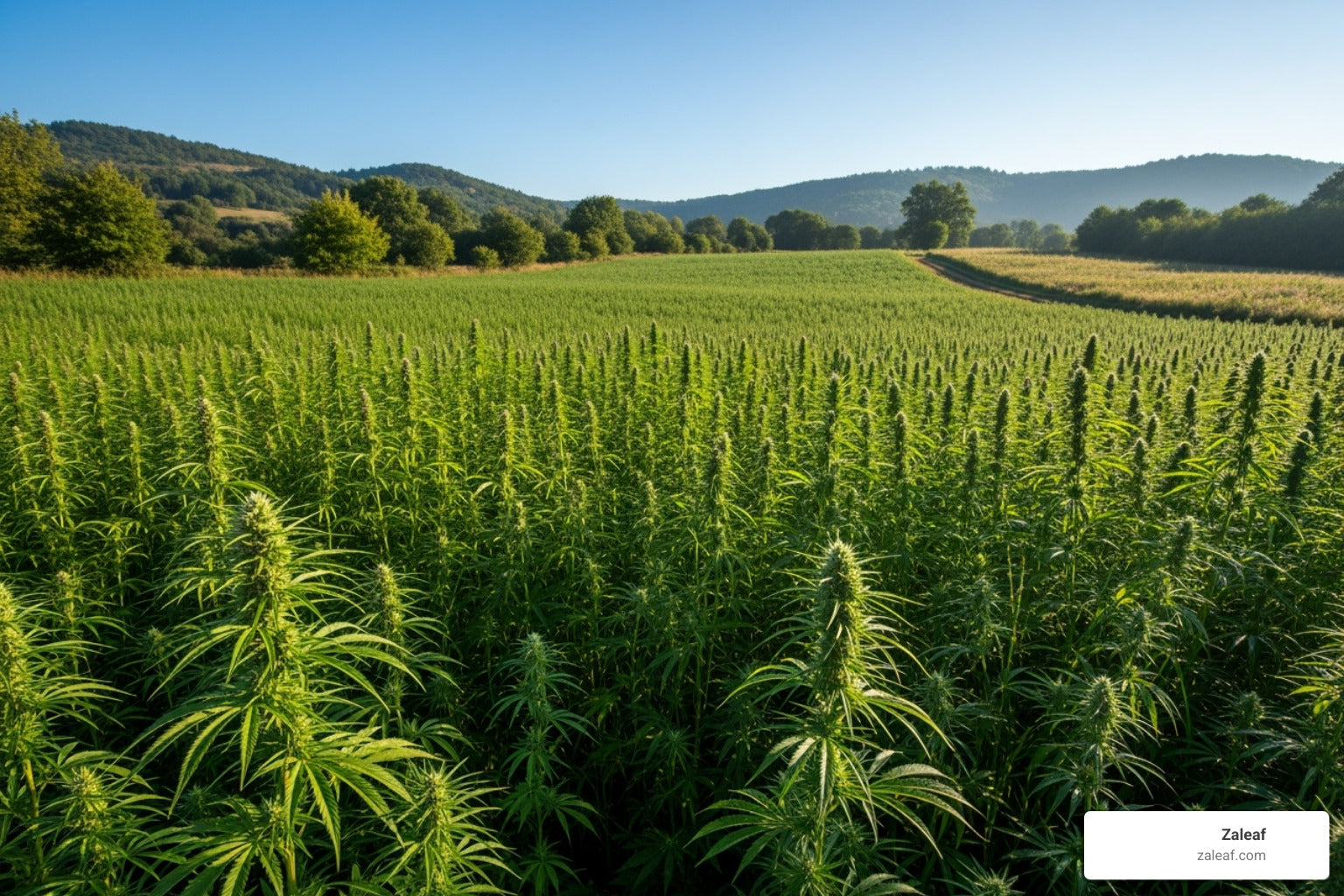
What is the Farm Bill and Why It Matters for Hemp Products
Farm bill compliant products have transformed the legal cannabis landscape since 2018, but understanding what this actually means can be confusing for consumers navigating today's complex hemp market.
Key Requirements for Farm Bill Compliant Products:
- Must contain less than 0.3% Delta-9 THC by dry weight
- Must be derived from legally cultivated hemp
- Must be produced under USDA-approved state regulations
- Subject to federal oversight and testing requirements
The 2018 Farm Bill, officially known as the Agriculture Improvement Act of 2018, is comprehensive legislation that covers everything from nutrition programs to conservation efforts. However, its most groundbreaking provision was the federal legalization of hemp - defined as cannabis containing no more than 0.3% Delta-9 THC by dry weight.
This single change removed hemp from the Controlled Substances Act and opened the door for a massive industry of CBD products, Delta-8 THC gummies, THCA flower, and other hemp-derived cannabinoids. The $428 billion legislation fundamentally changed how Americans access cannabis products, creating a legal pathway that doesn't require medical cards or state dispensaries.
But here's where it gets tricky: the Farm Bill's language has created what many call "loopholes" that allow for psychoactive products to exist in a legal gray area. Products marketed as farm bill compliant can range from non-intoxicating CBD oils to surprisingly potent edibles and flower.
Navigating the complexities of farm bill compliance is crucial for any company in this space. Experience in this rapidly evolving regulatory landscape shows how critical it is for consumers to understand what 'farm bill compliant' actually means for product safety and legality.
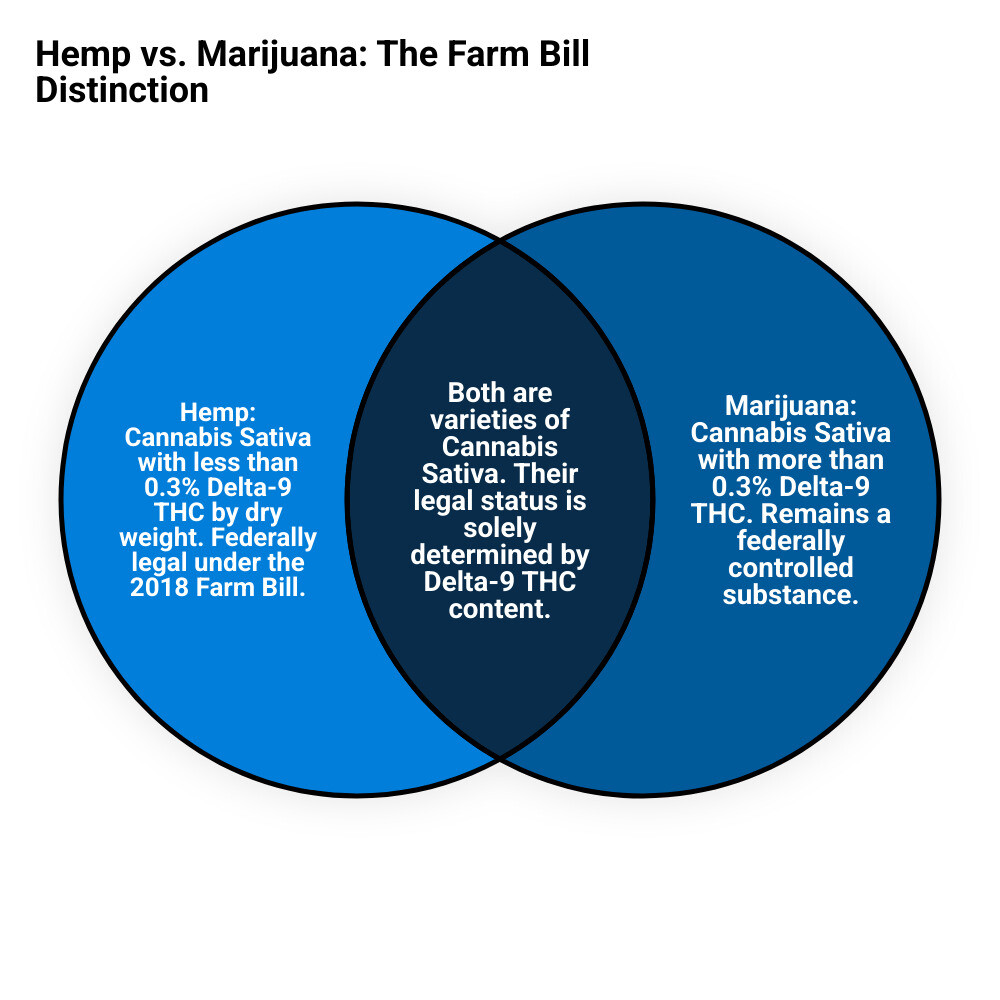
The 2018 Farm Bill and the Rise of Legal Hemp
Before 2018, the federal government treated all cannabis the same way - as an illegal substance under the Controlled Substances Act. It didn't matter if your cannabis plant could barely get a butterfly high; it was all lumped together as forbidden fruit.
Then came the Agriculture Improvement Act of 2018, better known as the 2018 Farm Bill, and everything changed. This wasn't just any ordinary piece of legislation - it was a $428 billion game-changer that finally gave hemp its day in court.
The magic happened when lawmakers drew a clear line in the sand: hemp contains 0.3% Delta-9 THC or less by dry weight, while marijuana contains more than that threshold. That tiny percentage became the difference between federal legality and federal crime.
Think of it this way - marijuana is like that friend who shows up to the party ready to get everyone buzzed, with THC levels ranging from 5% all the way up to 30% or more. Hemp, on the other hand, is the responsible cousin who brings snacks and makes sure everyone gets home safely.
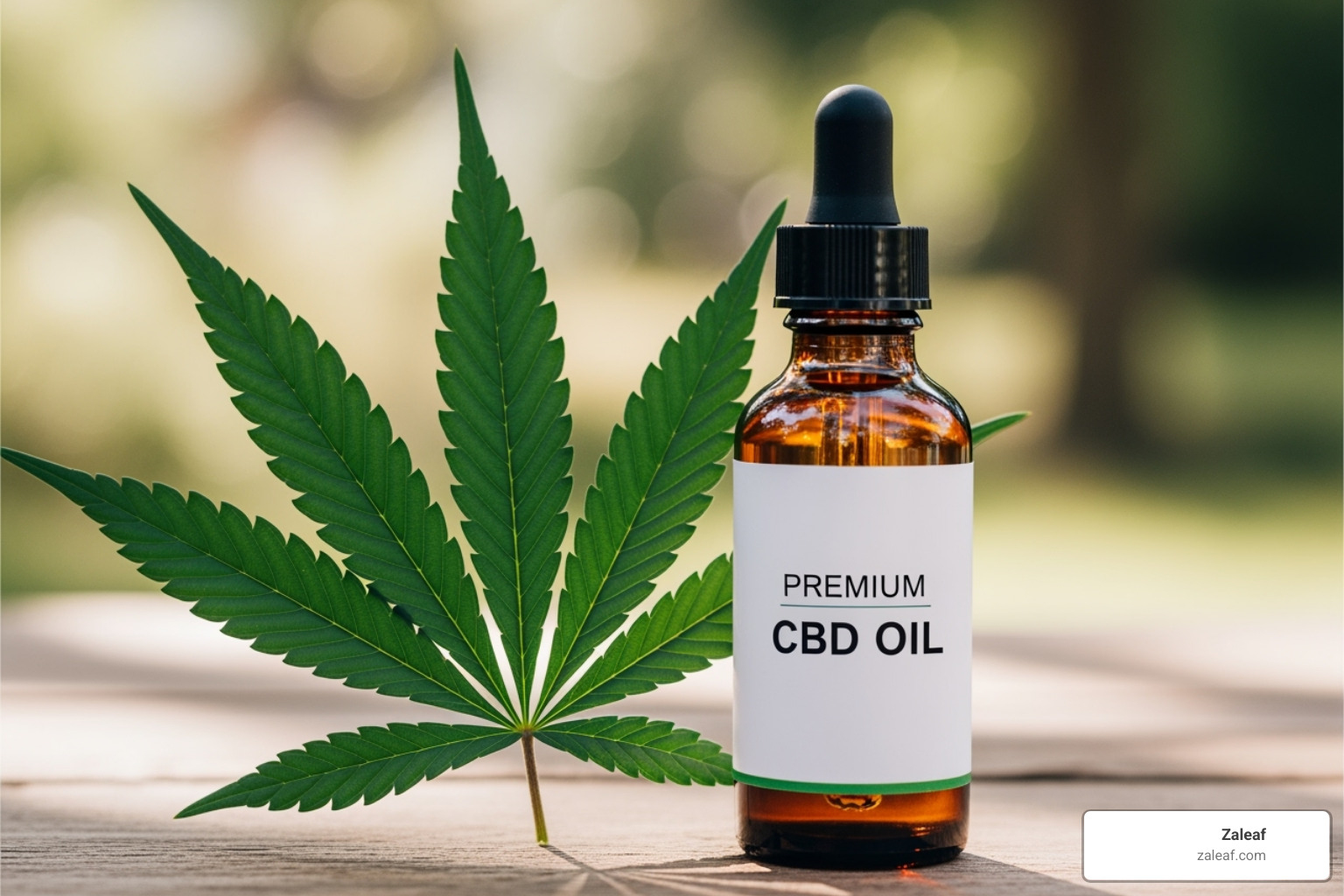
The USDA stepped in to oversee hemp cultivation, treating it like any other crop - corn, soybeans, you name it. States had to submit plans for licensing and regulating hemp farms, bringing legitimate oversight to an industry that had been operating in the shadows for decades.
This groundbreaking legislation opened the floodgates for farm bill compliant products across America. For the full details on this historic act, you can dive into The Agriculture Improvement Act of 2018.
How the Law Defines "Farm Bill Compliant" Products
When you see "farm bill compliant" on a product label, you're looking at that golden 0.3% Delta-9 THC by dry weight standard in action. But here's where things get interesting - and a little bit clever.
For hemp flower, oils, and tinctures, the math is pretty straightforward. Take a dried sample, measure the Delta-9 THC, and if it's under 0.3% of the total weight, you're good to go.
But edibles? That's where the "by dry weight" rule gets fascinating. Picture a small gummy that weighs 1,000 milligrams. If that little guy contains 2.5mg of Delta-9 THC, it's only 0.0025% THC by weight - well under the federal limit. Yet those 2.5mg can definitely provide a noticeable experience for most people.
This isn't a bug in the system - it's a feature that allows manufacturers to create psychoactive edibles that remain perfectly legal under federal law. The USDA oversees these regulations, and smart product formulation has made it possible to deliver meaningful effects while staying compliant.
Whether you're shopping for oils, edibles, or flower, all farm bill compliant products must meet this same federal standard. Reputable manufacturers make sure every single product hits this mark perfectly, giving you confidence in both legality and quality.
The Legal Status of CBD
The 2018 Farm Bill was like a get-out-of-jail-free card for CBD. Before this legislation, CBD was caught in the same legal web as marijuana, regardless of where it came from or how little THC it contained.
Now, hemp-derived CBD products with less than 0.3% Delta-9 THC are federally legal across all 50 states. No medical card needed, no state dispensary required - just walk into a store (or order online) and you're set.
But here's the catch - and there's always a catch. While the Farm Bill removed hemp from the Controlled Substances Act, the FDA still has something to say about CBD products. They've only approved one cannabis-derived medication (Epidiolex) for specific medical conditions. For everything else, the FDA maintains that adding CBD to food or calling it a dietary supplement is technically not allowed.
This creates a quirky situation where hemp-derived CBD is federally legal, but the FDA is still figuring out exactly how it should be regulated. Think of it as the wild west of wellness products.
The key distinction remains crystal clear: CBD from hemp (under 0.3% THC) is legal, while CBD from marijuana (over 0.3% THC) is still a Schedule I substance federally. Even if two CBD products look identical, their source determines their legal status.
All compliant CBD products come from farm bill compliant hemp, ensuring you're always on the right side of federal law. Learning how CBD fits into the bigger picture alongside other cannabinoids can help you make informed choices.
Understanding the "Loopholes": Delta-8, THCA, and Intoxicating Hemp
Here's where things get really interesting. The 2018 Farm Bill was written with good intentions, but it created some unexpected opportunities. By focusing only on Delta-9 THC levels and setting that 0.3% dry weight limit, lawmakers accidentally opened the door to what we now call "intoxicating hemp" - products that can definitely get you high while still being perfectly legal.
Think of it like this: the law said "no more than 0.3% Delta-9 THC," but it didn't mention Delta-8 THC, THCA, or dozens of other cannabinoids that can produce psychoactive effects. It's a bit like making a rule that says "no red cars allowed" and then being surprised when everyone shows up with blue, green, and purple cars.
This has led to an explosion of hemp-derived products containing cannabinoids like Delta-8 THC and THCA that can produce real psychoactive effects while remaining farm bill compliant. It's created opportunities for innovation, but it's also made the legal landscape pretty confusing for consumers.
The result? Some states have gotten nervous and started banning these products outright, creating a patchwork of laws across the country. What's legal in one state might be banned in the next, even though both products are technically farm bill compliant at the federal level.
The Delta-8 and Delta-9 "By Weight" Loophole
Let's break down how the "by weight" loophole actually works, because it's pretty clever. The Farm Bill says hemp can't have more than 0.3% Delta-9 THC by dry weight. For a flower or raw plant material, this is straightforward. But for edibles? That's where the math gets fun.
Picture a gummy that weighs 4 grams (that's 4,000 milligrams). If that gummy contains 10 milligrams of Delta-9 THC, the percentage by weight is only 0.25% - well under the legal limit. But here's the kicker: 10mg of Delta-9 THC is enough to get most people pretty high.
This means you can legally buy edibles that deliver a genuine psychoactive experience while still being farm bill compliant. It's not a mistake or an oversight - it's just how the math works when you apply the law to different product formats.
Delta-8 THC takes advantage of a different angle. Since the Farm Bill only specifically mentions Delta-9 THC, Delta-8 exists in a legal gray area. Even though it can produce psychoactive effects (though typically milder than Delta-9), it's not explicitly regulated under federal law.
This has created a booming market for psychoactive products that don't require a medical card or a trip to a licensed dispensary. But it's also raised some eyebrows among regulators who are starting to realize that the spirit of cannabis regulation might be getting bypassed.
For a deeper dive into how these cannabinoids compare, it's helpful to understand the chemical differences between them.
The THCA Flower Phenomenon
Now here's where things get really wild. THCA (Tetrahydrocannabinolic acid) is creating what might be the most interesting "loophole" of all. THCA is basically the raw, unheated version of Delta-9 THC. When cannabis grows, it doesn't actually produce much Delta-9 THC - it produces THCA instead.
The magic happens when you apply heat. Light up that THCA flower, and the heat converts the THCA into Delta-9 THC through a process called decarboxylation. It's like having a product that transforms from legal to psychoactive the moment you use it.
Since the Farm Bill only regulates Delta-9 THC content, not THCA, you can legally sell hemp flower that's loaded with THCA but still contains less than 0.3% actual Delta-9 THC in its raw state. Once someone smokes or vapes that flower, though, they're getting a full Delta-9 THC experience that can rival traditional marijuana.
This has created a fascinating situation where people in non-legal states can order what's essentially "marijuana that isn't marijuana" online. The flower looks, smells, and acts like traditional cannabis once heated, but it's technically farm bill compliant hemp.
It's worth noting that this area of the market is evolving rapidly. Future versions of the Farm Bill will likely address "Total THC" (including THCA) rather than just focusing on Delta-9, which could change this landscape significantly.
If you're new to exploring these hemp-derived options, starting with a beginner's guide to cannabinoids like Delta-8 can help you understand the basics.
Navigating a Complex Market: Risks and How to Stay Safe
The hemp industry's explosive growth since 2018 has been amazing to witness, but let's be honest - it's also created some challenges. When you're shopping for farm bill compliant products, you're entering a market that's still finding its regulatory footing. While this means more choices and innovation, it also means you need to be a savvy consumer.
Here's the reality: not every product labeled as farm bill compliant meets the same quality standards. The rapid expansion has attracted both dedicated companies committed to excellence and others who might be cutting corners. Without comprehensive federal oversight beyond the basic THC limits, the market can feel like the Wild West sometimes.
There are products that claim compliance but haven't undergone proper testing. Some contain pesticides from unregulated growing operations, others have heavy metals absorbed from contaminated soil, and some even have residual solvents left over from cheap extraction processes. The potency inconsistencies can be equally problematic - imagine expecting a mild 2.5mg experience and getting hit with something much stronger because of inaccurate labeling.
This isn't meant to scare you away from hemp products. Instead, it's important to be armed with the knowledge to make informed choices. Reputable companies build their reputation on transparency precisely because they understand these concerns. When you know what to look for, you can confidently steer this complex market and find products that are both safe and effective.
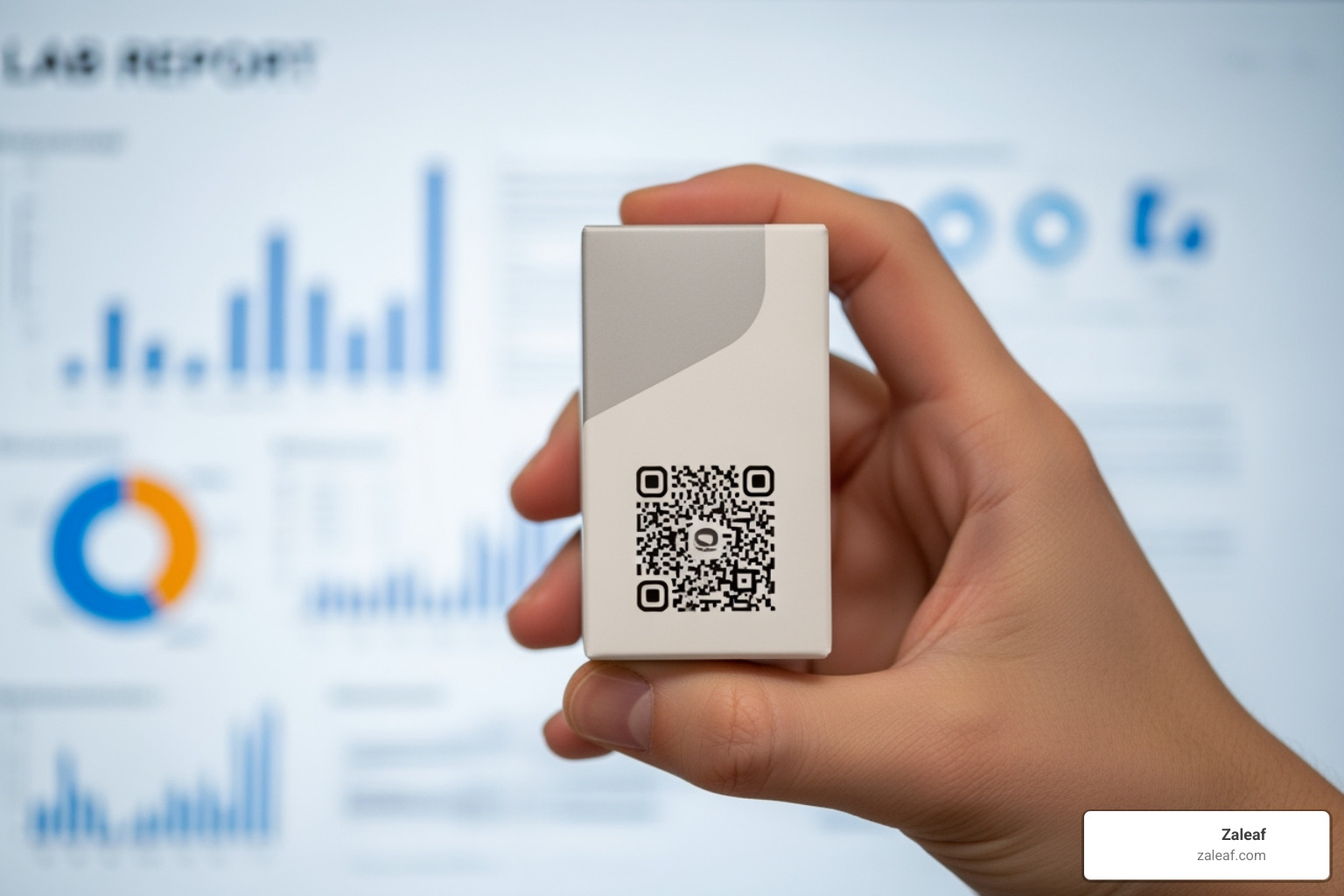
Why Third-Party Testing is Non-Negotiable for Farm Bill Compliant Products
When it comes to farm bill compliant products, third-party testing isn't just a nice bonus - it's absolutely essential. Think of it as your safety net in an unregulated market. A Certificate of Analysis (COA) from an independent lab is like getting a detailed report card for your product.
Every legitimate COA should verify the cannabinoid profile first. This confirms you're getting exactly what's on the label - the right amount of Delta-8, CBD, or whatever cannabinoid you're seeking. More importantly, it proves the product stays under that crucial 0.3% Delta-9 THC limit that keeps it farm bill compliant.
But here's where it gets really important for your safety: purity testing. A comprehensive lab report checks for pesticides that could harm your health, heavy metals like lead or mercury that plants sometimes absorb from soil, and residual solvents left behind from extraction. It also screens for microbials like dangerous bacteria or mold, plus mycotoxins - toxic compounds that certain fungi produce.
Look for that QR code on your product packaging. Scan it, check the lab report, and don't settle for products that don't provide easy access to their COAs. If you can't find testing results, that's a red flag. Reputable companies make their third-party testing results readily available because transparency builds trust - and trust keeps you safe.
A rigorous testing process means you never have to wonder what you're putting in your body. Every product should undergo comprehensive analysis before it reaches you.
For those curious about how these products might affect drug screening, it's important to research how cannabinoids like Delta-8 are processed by the body and detected on tests.
State Laws vs. Federal Law
Here's where things get tricky: just because something is farm bill compliant at the federal level doesn't automatically make it legal everywhere. The 2018 Farm Bill gave states the right to set their own rules, and boy, have they taken advantage of that flexibility.
Some states have acceptd the federal framework completely, welcoming Delta-8, THCA flower, and other hemp-derived products with open arms. Others have said "not so fast" and implemented their own restrictions. A few states have banned specific cannabinoids entirely, while others have redefined hemp to include "Total THC" calculations that encompass both Delta-9 THC and THCA.
Take Nebraska, for example. They have their own Nebraska Hemp Farming Act that spells out exactly what they consider acceptable for hemp products within their borders. What's perfectly legal in Colorado might land you in hot water if you cross into a state with stricter regulations.
The landscape changes regularly too. States that were hemp-friendly last year might have passed new restrictions this year. Local municipalities can add another layer of complexity with their own ordinances.
Before ordering any farm bill compliant products, take a few minutes to research your state's current laws. It's not the most exciting homework, but it beats dealing with legal complications later. Staying informed about your local regulations is just smart shopping in this evolving market.
The good news? Most states are moving toward clearer, more consistent regulations as the industry matures. Until then, a little due diligence goes a long way.
Frequently Asked Questions about Farm Bill Compliance
Navigating hemp and cannabis legality can feel like trying to solve a puzzle with pieces that keep changing shape. We hear questions about farm bill compliant products every day, and honestly, we get it - the laws can be confusing! Let's clear up some of the biggest mysteries.
Is Delta-9 THC legal under the Farm Bill?
Here's where things get interesting: yes, Delta-9 THC is absolutely legal under the Farm Bill - but there's a crucial catch that makes all the difference. The Delta-9 THC must come from hemp and stay under that magic 0.3% Delta-9 THC by dry weight limit we've been talking about.
This is where product formulation gets clever. Remember our gummy example? A 4-gram gummy containing 10mg of Delta-9 THC only hits 0.25% by dry weight, making it perfectly farm bill compliant even though 10mg can definitely get you high. It's like finding a legal loophole that actually works in your favor.
So when you see hemp-derived edibles with noticeable amounts of Delta-9 THC on store shelves, they're not breaking any rules - they're just using smart math to stay within federal guidelines while still delivering the experience you're looking for.
How is the Farm Bill different from state-level marijuana legalization?
Think of it this way: the Farm Bill and state marijuana laws are playing completely different games, even though they're on the same field. The 2018 Farm Bill federally legalized hemp, which means it took hemp (that cannabis with less than 0.3% Delta-9 THC) off the federal naughty list entirely.
But here's what didn't change: marijuana is still federally illegal. Those state programs you hear about in places like Colorado or California? They're operating in what we might call a "federal don't ask, don't tell" zone. The federal government mostly looks the other way, but technically, marijuana remains a Schedule I substance.
This creates some pretty wild situations. You could legally buy marijuana in a dispensary in one state, but the moment you cross state lines with it, you're technically breaking federal law. Meanwhile, farm bill compliant products can legally travel from state to state because they're federally legal everywhere.
It's like having two different sets of rules for what looks like the same game - and that's exactly why understanding the distinction matters so much for your safety and peace of mind.
What does the future hold for the Farm Bill and hemp?
The crystal ball gets a bit cloudy here, but we can see some interesting patterns forming. The current Farm Bill got extended through September 30, 2025, which means we're heading toward another big reauthorization process soon.
The hemp industry is holding its breath for these discussions because they could change everything. The biggest talk in regulatory circles centers around switching from the current Delta-9 THC standard to something called "Total THC" testing. This would include THCA in the calculations, effectively closing what many call the "THCA flower loophole."
If this change happens, many of the psychoactive hemp products currently flooding the market might need to be reformulated or could disappear entirely. It would fundamentally reshape what farm bill compliant means for consumers and manufacturers alike.
The process involves extensive hearings, public input, and lots of debate between lawmakers, industry folks, and advocacy groups. We expect stricter definitions and more oversight as regulators catch up to the innovative products the current bill enabled.
What does this mean for you? Enjoy the current landscape while staying informed about changes. The farm bill compliant products you love today might look different in a few years, but the core principle of safe, legal hemp access will likely remain strong.
Conclusion: The Evolving World of Legal Cannabis
The 2018 Farm Bill didn't just change a few regulations – it completely transformed how Americans access cannabis products. What started as agricultural legislation became the catalyst for an entire industry built around farm bill compliant hemp products. Today, you can walk into thousands of stores nationwide and find everything from calming CBD oils to surprisingly potent Delta-8 gummies, all legally derived from hemp.
But as we've seen throughout this guide, this new world comes with its own set of challenges. The legal landscape is anything but simple, with federal laws creating "loopholes" that allow psychoactive products while state regulations often tell a different story. It's like trying to steer with a map where the roads keep changing.
This complexity is exactly why consumer education matters so much. Understanding what farm bill compliant actually means – and more importantly, what it doesn't guarantee – can be the difference between a safe, enjoyable experience and a disappointing or even risky one. The wild west nature of this unregulated market means some products might not contain what their labels claim, or worse, might contain harmful contaminants.
Reputable brands build their entire approach around cutting through this confusion. Every product they create should undergo rigorous third-party testing because you shouldn't have to guess what you're putting in your body. A commitment to transparency means you'll have access to detailed lab reports, and a focus on quality ensures that farm bill compliant isn't just a legal checkbox – it's a promise of safety and consistency.
The story of legal cannabis is far from over. With the Farm Bill extension running through 2025, we're likely heading toward significant changes in how hemp products are regulated. The THCA flower phenomenon and Delta-8 market may look very different after the next reauthorization. But whatever changes come, the dedication of reputable companies to providing thoroughly tested, compliant products will remain constant.
Whether you're curious about CBD's wellness benefits or interested in exploring the more psychoactive side of hemp-derived cannabinoids, the key is staying informed and choosing products from companies that prioritize your safety above all else.
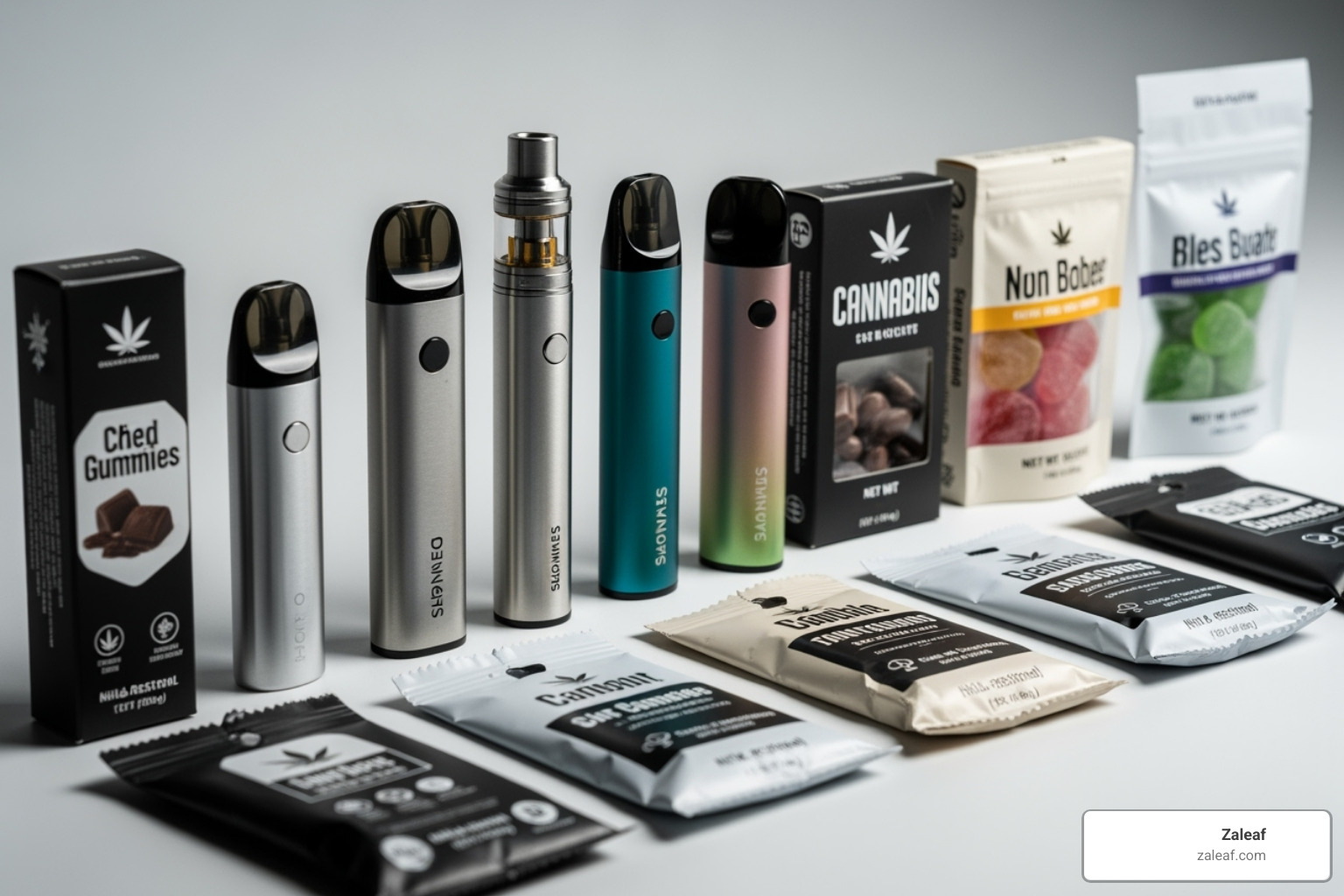
When you're ready to explore the market, look for lab-tested, Farm Bill compliant products from transparent brands to ensure your peace of mind.


